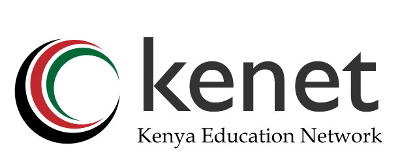You are here
Harnessing Innovation for a Greener Future: How Dr. Pembere and Team are Advancing CO₂ Capture.
- Posted on: 19 February 2025
- By: admin
In the face of escalating global warming driven by rising Carbon Dioxide (CO2) emissions, a team of researchers led by Dr. Anthony Pembere at Jaramogi Oginga Odinga University of Science and Technology (JOOUST) is pioneering innovative solutions to tackle this pressing environmental challenge. Their groundbreaking project, Theory-Guided Engineering of Zeolite-Templated Carbons for Enhanced Selective CO2 Capture for Fuel Applications, leverages molecular dynamics, machine learning, and experimental synthesis to develop advanced materials capable of capturing CO2 and converting it into usable fuels.
In 2023, KENET awarded a total of KES 4,500,000 in Computational Modelling and Materials Science (CMMS) innovation grants to three (3) research projects. These grants were allocated to three (3) lead researchers and extended to twelve (12) additional team members from six (6) universities and one (1) research institute. Among the recipients was Dr. Anthony Pembere, a lecturer at Jaramogi Odinga University of Science and Technology (JOOUST), who was one (1) of the three (3) lead researchers awarded the innovation grants.
He is the project’s primary investigator (PI). He holds a PhD in Chemistry from the Chinese Academy of Sciences. His research team comprises Timothy Manda, a PhD student in Physics, who focuses on screening metal catalysts for CO2 conversion using machine learning and molecular simulations. Douglas Bukhebi Sifuna, a PhD student in Chemistry, specializes in synthesizing zeolite-templated carbons (ZTCs) for carbon capture. Irine Guduh, a master’s student in Physics, evaluates ZTCs for methane storage, while Wafula Collins, a master’s student in Chemistry, synthesizes the best-performing ZTCs for CO2 capture. Felix Atieno Okelo, a PhD student in Physics, contributes by assessing ZTCs for CO2 capture using machine learning and linear regression models.
Dr. Anthony Pembere (R), Felix Otieno and Collins Wafula
The project also benefits from collaborations with experts from other Kenyan universities, including Dr. Kyalo Mutua (Masinde Muliro University of Science and Technology), Dr. Denis Magero (Alupe University), Dr. Dismas Choge (University of Eldoret), and Dr. Fredrick Okumu (JOOUST). Their combined expertise in synthesis, molecular simulations, and characterization has been instrumental in advancing the research.
The increasing concentration of CO2 in the atmosphere is a major contributor to global warming. However, CO2 can also be viewed as a valuable carbon source for synthesizing fuels, offering a dual solution: mitigating CO2 emissions and addressing the growing global energy demand. The challenge lies in developing efficient materials and processes to capture and convert CO2 into usable fuels.
Zeolite-templated carbons (ZTCs) are a unique class of nanoporous materials with large surface areas and uniformly sized micropores, making them ideal for CO2 capture. These materials consist of nanographene structures resembling Bucky bowls, connected in a three-dimensional network. Their sp2 carbon composition and porous structure make them highly effective adsorbents for CO2.
Dr. Pembere’s team employed a two-pronged approach to identify and optimize ZTCs for CO2 capture. First, they used molecular dynamics and machine learning to screen and tune ZTCs from a database. Next, they experimentally synthesized the best-performing materials, focusing on FAU zeolite-templated carbon, which demonstrated exceptional CO2 adsorption capabilities.
The project has achieved several milestones:
- Material Screening and Tuning: The team successfully screened and optimized ZTCs using molecular dynamics and machine learning, resulting in a draft manuscript.
- Synthesis of ZTCs: They synthesized FAU zeolite-templated carbon, identified as the best-performing material through simulations.
- CO2 Capture Application: The synthesized ZTCs were successfully applied in CO2 adsorption experiments, demonstrating their potential for practical use.
The team is also finalizing the following three manuscripts for publication:
- Evaluation of Zeolite-Templated Carbons for CO2 Capture via Molecular Simulations and Machine Learning
- Screening for Metal Catalysts for CO2 Conversion via Machine Learning and Molecular Simulations
- Synthesis of FAU and CLN Zeolite-Templated Carbon and Application in Carbon Capture
The Kenya Education Network (KENET) played a pivotal role in supporting this research. It’s Research and Innovation grant was used to pay stipends for postgraduate students, access equipment for material synthesis and characterization, and purchase chemicals for experimental work. Additionally, KENET’s Special Interest Group Forum held on May 9-10, 2024, provided a platform for knowledge exchange and motivation. Dr. Pembere highlighted the importance of KENET’s support in enabling the team to achieve their objectives and contribute meaningfully to the field of CO2 capture.
While praising KENET’s commitment to fostering innovation, the team recommends additional mentorship and capacity-building programs for early-career researchers. Training in project management, grant writing, and commercialization could further enhance the impact of KENET-funded projects.
Dr. Pembere and his team are at the forefront of developing sustainable solutions for CO2 capture and conversion. By combining theoretical insights, machine learning, and experimental synthesis, they have demonstrated the potential of zeolite-templated carbons to address one of the most pressing challenges of our time. With continued support from organizations like KENET, such innovations could pave the way for a greener, more sustainable future.
About KENET Research and Innovation Grants
The KENET innovation grants are mainly awarded to early career faculty teams to spur research and education collaboration among member institutions in addressing current and emerging issues to expand the community of researchers. Through these innovation grants, KENET hope to not only support individual research teams, but to facilitate institutional collaboration and formation of communities of practice in the research areas of focus leading to enhanced research capacity in member institutions.
